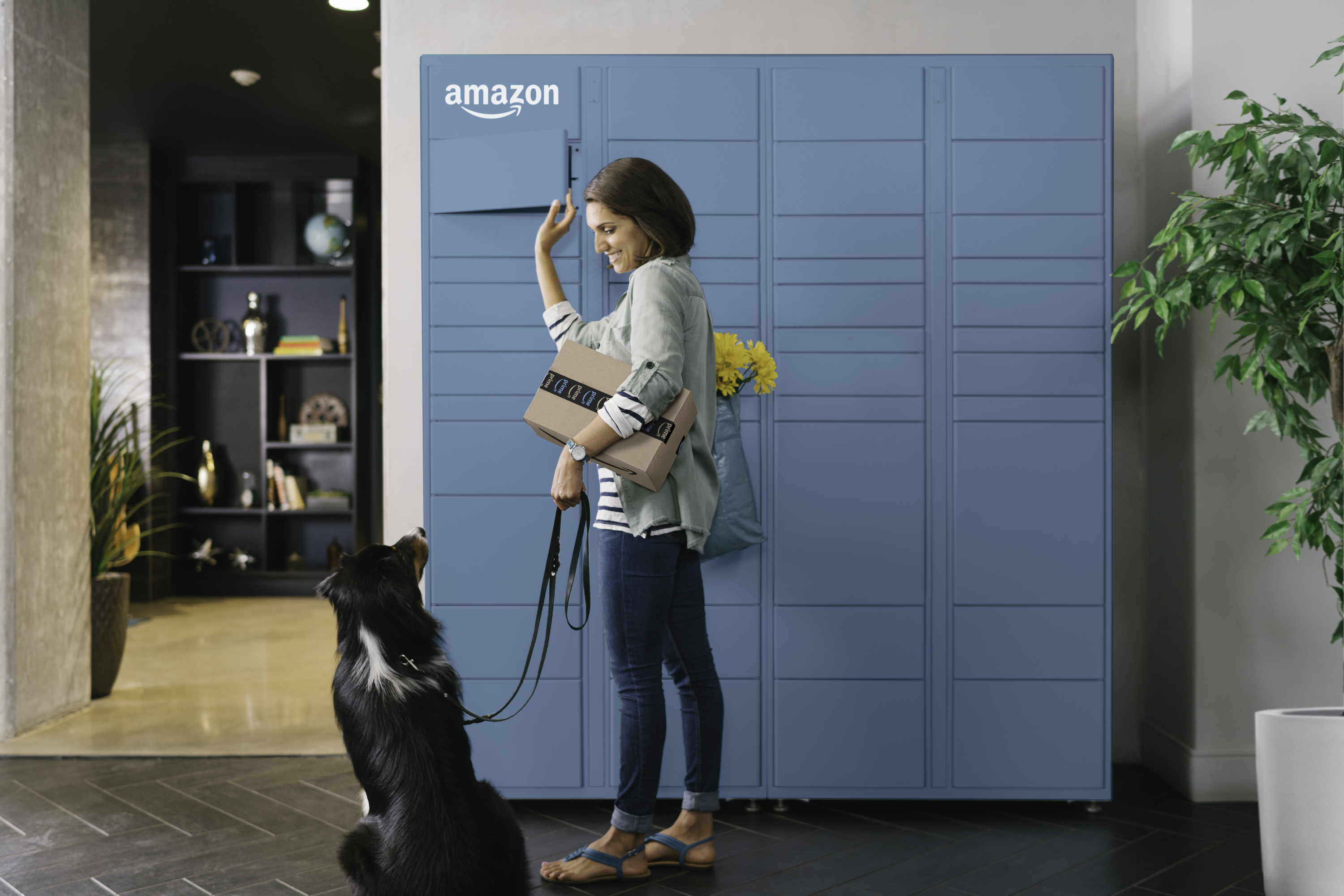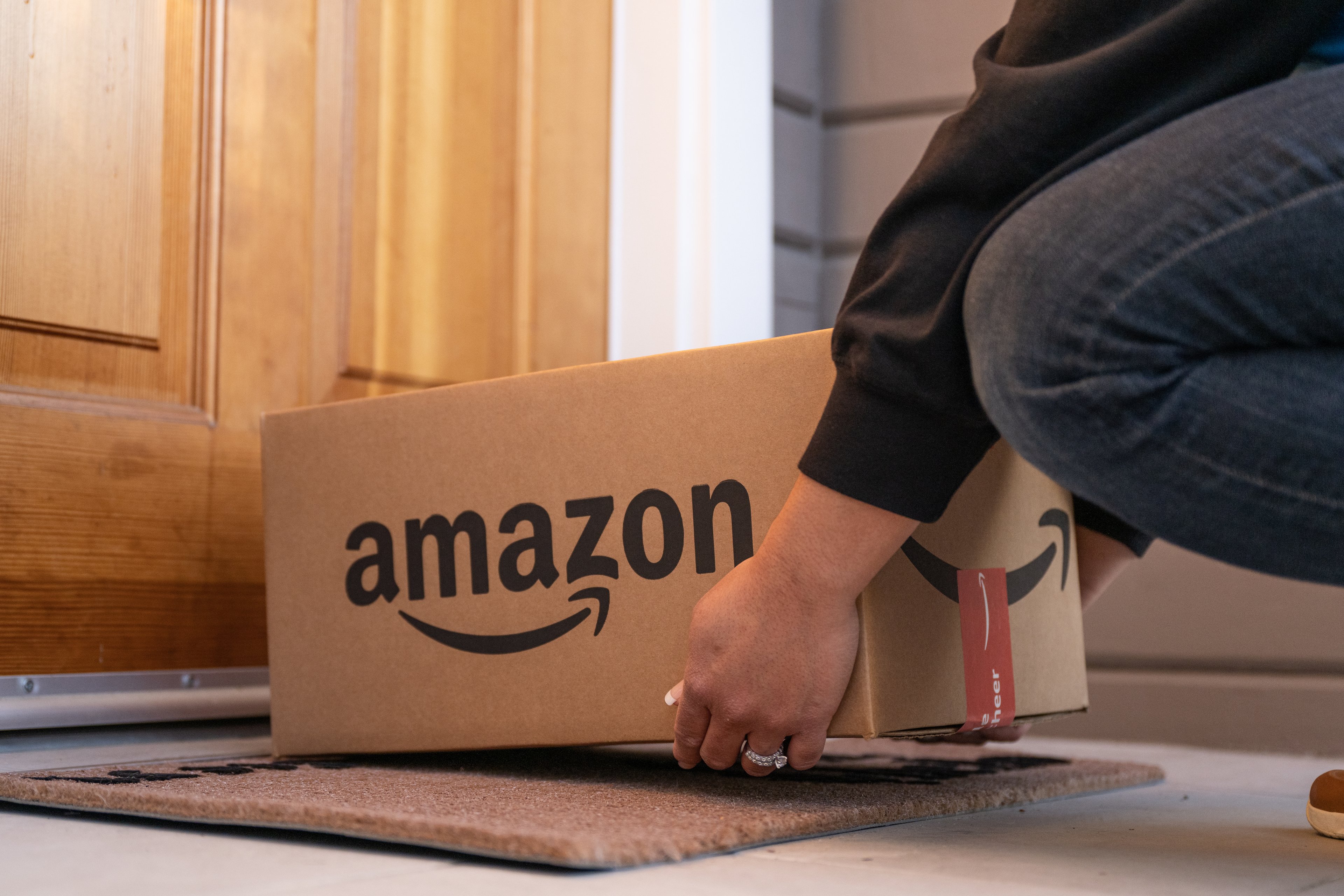This article was updated Dec. 7, 2017, and originally published Sept. 11, 2016.
We talk a good game about buy-and-hold investing here at The Motley Fool. But the truth is, not all Fools always live up to that mantra in the real world. For instance, I bought shares of Alphabet (back when it was Google) at just $150 per share. If I'd held those shares, I'd have a seven-bagger (over 600% return) on my hands. But instead, I sold at $200. What a waste!
Thankfully, I've learned from those mistakes. Today, I want to talk about Amazon.com (AMZN +2.62%). The company occupies a (perhaps imprudent) 22% share of my family's real-life holdings. But we have no intention of selling...ever. Here's why.

Image source: Getty Images.
1. The single most important thing
Have you ever read Amazon's mission statement? It has nothing to do with e-commerce, or books, or even cloud hosting. And yet, it's been exactly the same since Day One. And it is the lens through which both the company's past and future need to be viewed:
We seek to be Earth's most customer-centric company.
Some might view branching into groceries (it most recently bought Whole Foods in August 2017) or original video content -- or even delivery services that could soon rival FedEx and UPS -- as leaving the e-commerce circle of competence. But to CEO Jeff Bezos, these moves are just a continuation of the company's mission: to disrupt industries that aren't serving customers as well as they could be, and rewrite the rules.
That gives the company an unending list of potential futures that will be exciting to see unfold.
2. A founder-led company
We here at The Motley Fool love founder-led companies -- partly because brothers Tom and David Gardner are still at the reins here, but mostly because founders tend to be more passionate about the success of the companies they created. A study out of Purdue's Krannert School of Management showed that founder-led companies tend to be more innovative (as measured by the number of patents obtained) and financially successful.
Bezos founded Amazon back in 1994, and he's been at the helm ever since.
3. Bezos has lots of skin in the game
Lest you think that Bezos is using Amazon as a simple cash machine to enrich himself, it's worth noting that he has a significant personal stake. As of the company's April 2017 proxy statement, Bezos owned roughly 81 million shares of Amazon. That's equivalent to almost 17% of the company, and worth about $94 billion. When you invest with Amazon, your interests are aligned with Bezos'.
4. The e-commerce trend is just getting started
It's hard to capture just how far e-commerce still has to go:

Image source: U.S. Census Bureau.
According to the U.S. Census Bureau, we have only seen the tip of the iceberg. As of September 2017, only 9.1% of all retail sales occurred via e-commerce. While I don't think we'll ever see the figure approach 100%, even if half of all purchases are eventually made online, that means a quintupling of today's levels. Amazon, more than anyone, stands to benefit from this.
5. Those fulfillment centers deliver a huge moat
One of the biggest advantages Amazon has over the competition is its network of fulfillment centers. According to logistics consultant MWPVL, the company has 116 such centers in America, with plans for 29 more. These centers are multimillion-dollar buildings; competitors would have to go into deep debt to just scratch the surface of matching Amazon's scale.
Research by Piper Jaffray finds that an incredible 44% of the U.S. population now lives within a mere 20 miles of an Amazon fulfillment network "node." It's because of this network that Amazon can deliver your packages so quickly -- the main benefit of membership in Amazon Prime.
6. The strength of Prime
The benefits of a $99 annual Amazon Prime membership are astounding. But really, it all comes down to free two-day shipping. How popular is that deal? The company is pretty tight-lipped about such numbers, but that hasn't stopped others from doing their own research.
BI Intelligence estimates that in December 2011, there were fewer than 10 million Prime members. By the end of 2016, it's believed that this figure increased 700% to 80 million members.
7. There's still a huge international market to tackle
If you back out Amazon Web Services, North America accounted for 64% of all e-commerce sales for the company in 2016. All international markets combined contributed just 36% to the top line. That's a lot of potential for growth!
8. The company's willing to fail
When analysts took cheap shots at Bezos after the failure of the Amazon Fire phone, he had this to say:
If you think that's a big failure, we're working on much bigger failures right now -- and I am not kidding. Some of them are going to make the Fire Phone look like a tiny little blip.
Why is that such a good thing? Because innovation comes from embracing trial and error -- and "error" is a necessary component. None of the bold bets Amazon is making will bankrupt the company, but if just a few turn out to work, the effect on the company's bottom line will be enormous.
9. Previous winners tend to keep winning
We're often afraid to buy a stock when it's gone up so much. But there's usually a reason that a stock experiences tremendous jumps: because its shares represent ownership in one of the greatest companies of our time.
Amazon has returned 1,130% for shareholders over the last 10 years. That's a great track record that I expect to see continue -- albeit at a tempered pace.
10. I love using the company
I get a box from the company delivered every other day. I love it. I know why it's a stock worth owning. You probably do, too. So why don't you own shares yet? After reading this, you're pretty much out of excuses...










